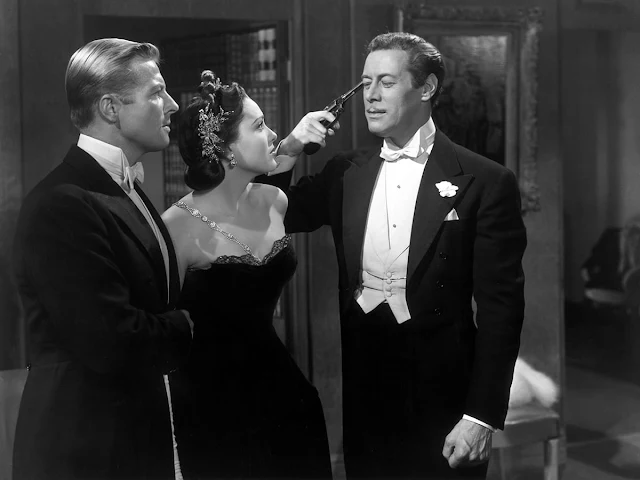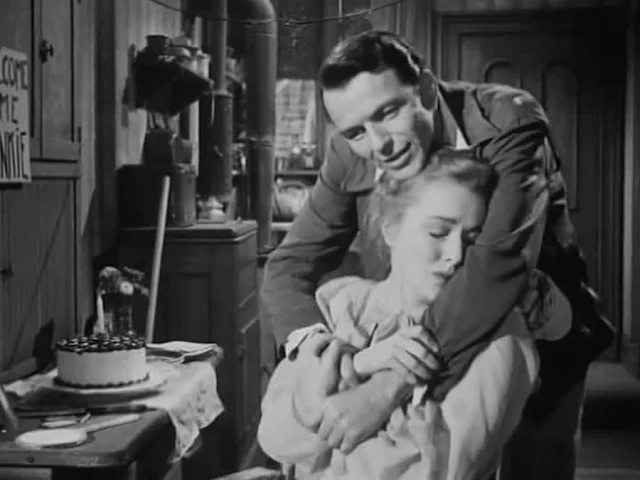 |
| Kurt Kreuger, Linda Darnell, and Rex Harrison in Unfaithfully Yours |
Cast: Rex Harrison, Linda Darnell, Rudy Vallee, Barbara Lawrence, Kurt Kreuger, Lionel Stander, Edgar Kennedy, Al Bridge, Julius Tannen, Torben Meyer, Robert Greig. Screenplay: Preston Sturges. Cinematography: Victor Milner. Art direction: Lyle R. Wheeler, Joseph C. Wright. Film editing: Robert Finch, Stuart Gilmore. Musical director: Alfred Newman.
Preston Sturges's familiar "stock company" of character actors like William Demarest, Jimmy Conlin, Julius Tannen, Robert Greig, and others served an important role in creating a context in which otherwise straight leading actor types like Joel McCrea, Henry Fonda, Claudette Colbert, and Barbara Stanwyck could let themselves go and behave in ways that they normally wouldn't on screen. No film demonstrates this function better than Unfaithfully Yours, in which the silliness of performers like Lionel Stander, Edgar Kennedy, and others let Rex Harrison and Linda Darnell loosen up and go a little bit crazy -- or in Harrison's case, quite a bit more than crazy. Psychotic, to be blunt about it. This was Sturges's least successful with audiences of his major comic films of the 1940s, and it marked the start of the decline of his career. It may be that postwar audiences were not ready to laugh at the kind of mayhem that Unfaithfully Yours contains -- after all, a man brutally slashing his wife with a freshly sharpened razor is not an image that normally elicits laughs. There's a failure of tone in the way Sturges writes and stages the scene, which takes place only in the mind of Harrison's character, Sir Alfred De Carter, as he conducts a symphony orchestra in a performance of Rossini's Overture to Semiramide (somewhat padded out with a Rossiniesque pastiche by music director Alfred Newman). It's all a setup, of course, for the slapstick sequence in which Sir Alfred tries to follow through on the imagined murder, only to screw things up monumentally and hilariously. But the premise is sour to start with. It encourages us to believe that Sir Alfred is the kind of man who would not only imagine killing his wife but also follow through on the idea persistently, like Wile E. Coyote attempting to off the Road Runner. The film may end with the restoration of order, and the De Carters cozily snuggling up to each other, but it's hard to resist the thought that something else could happen to make him snap tomorrow. Still, that's the major blemish on what is, if you don't think too closely about it, a very funny movie with one of Harrison's best performances, and a lot of sublime comic bits supplied by the stock company players. Sturges's dialogue, as usual, is mile-a-minute laugh lines, going by so fast that the captioners have trouble keeping up with them. It would be pure giddy fun, if the plot weren't intrinsically so dark.














